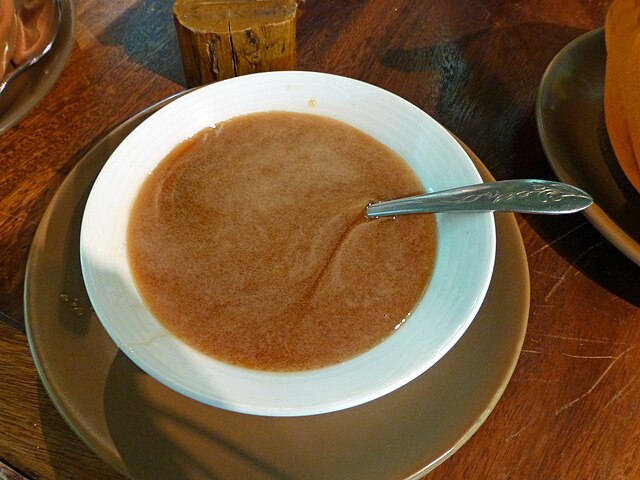Theriac or theriaca is a medical concoction originally labelled by the Greeks in the 1st century AD and widely adopted in the ancient world as far away as Persia, China and India via the trading links of the Silk Route. It was an alexipharmic, or antidote for a variety of poisons and diseases. It was also considered a panacea, a term for which it could be used interchangeably: in the 16th century Adam Lonicer wrote that garlic was the rustic's theriac or Heal-All.
Preparation of theriac: illustration from the Tacuinum sanitatis
Andromachus the Elder on horseback, questionning a patient who has received a snake bite. Kitâb al-Diryâq ("The Book of Theriac"), 1198-1199, Syria.
Albarello vase for theriac, 1641
Theriac pot dated 1782 from the Hospices de Beaune
Treacle is any uncrystallised syrup made during the refining of sugar. The most common forms of treacle are golden syrup, a pale variety, and black treacle, a darker variety similar to molasses. Black treacle has a distinctively strong, slightly bitter flavor, and a richer color than golden syrup. Golden syrup treacle is a common sweetener and condiment in British cuisine, found in such dishes as treacle tart and treacle sponge pudding.
Treacle in a bowl





